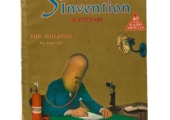March 27, 2013
BIM task force group to represent built environment
Building Information Modelling (BIM) is of as much importance to those tasked with using and managing buildings as those involved in their design and construction and has led to the formation of the BIM4FM group, which represents institutes, trade associations and professional bodies within the built environment. Supported by the Cabinet Office Government Property Unit, the BIM4FM group will provide input into the on going development of BIM and work being developed through the Government Property Unit and BIM Task Group. Geoff Prudence, Chair of the BIM4FM group said: “Although BIM has long been discussed at the construction end of the supply chain it has only recently and repeatedly started to raise its profile with those operating and using buildings.” More →






























March 28, 2013
Our hardwired response to patterns can be a useful trait for designers
by Mark Eltringham • Comment, Facilities management, Workplace design
More →